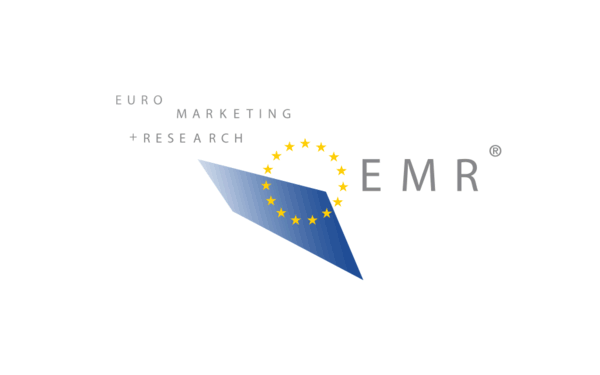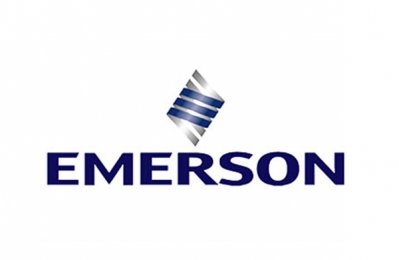Emerson – Emerson Outlines Strategy and Progress in 2022 ESG Report
 Report highlights achievements of greenhouse gas emissions goal, culture evolution and energy transition solutions
Report highlights achievements of greenhouse gas emissions goal, culture evolution and energy transition solutions
ST. LOUIS (June 13, 2023) – Global technology and software company Emerson (NYSE: EMR) released its 2022 ESG Report today, detailing the company’s environmental, social and governance (ESG) achievements, impact and continued priorities.
“Our organization has made tremendous progress over the last year, strengthening Emerson’s position as a global automation leader, accelerating our culture evolution and driving innovation,” said Mike Train, Emerson’s chief sustainability officer. “This report shares our achievements and details the pivotal role Emerson plays in the energy transition by helping customers across a variety of industries solve sustainability and decarbonization challenges. We remain committed to prioritizing actions that reduce emissions across our global operations, strengthen the communities we serve and accelerate value creation for all stakeholders.”
The report highlights notable sustainability goals and performance, including:
- 42% reduction in greenhouse gas emissions intensity from the 2018 baseline, surpassing its original 20% target six years ahead of schedule
- A- score from CDP
- Score of 100% on the Human Rights Campaign Foundation’s 2022 Corporate Equality Index
- 2022 “Best Employer for Diversity” by Forbes
- Approximately 70% of revenue tied to sustainability enabling technologies*
To view Emerson’s 2022 ESG Report, please visit Emerson.com/ESG.
Source
Emerson
EMR Analysis
More information on Emerson: See the full profile on EMR Executive Services
More information on Lal Karsanbhai (President and Chief Executive Officer, Emerson): See the full profile on EMR Executive Services
More information on Michael Train (Senior Vice President and Chief Sustainability Officer, Emerson): See the full profile on EMR Executive Services
More information on CDP: http://www.cdp.net/ + CDP is a global non-profit that runs the world’s environmental disclosure system for companies, cities, states and regions. Founded in 2000 and working with more than 680 financial institutions with over $130 trillion in assets, CDP pioneered using capital markets and corporate procurement to motivate companies to disclose their environmental impacts, and to reduce greenhouse gas emissions, safeguard water resources and protect forests. Nearly 20,000 organizations around the world disclosed data through CDP in 2022, including more than 18,700 companies worth half of global market capitalization, and over 1,100 cities, states and regions. Fully TCFD aligned, CDP holds the largest environmental database in the world, and CDP scores are widely used to drive investment and procurement decisions towards a zero carbon, sustainable and resilient economy. CDP is a founding member of the Science Based Targets initiative, We Mean Business Coalition, The Investor Agenda and the Net Zero Asset Managers initiative.
More information on Paul Simpson (CEO, CDP): https://www.cdp.net/en/articles/media/paul-simpson-to-step-down-as-ceo-of-cdp-after-two-decades-of-leadership
More information on Forbes: https://www.forbes.com/?sh=58f14dd12254 + Forbes Media is a global media, branding and technology company, with a focus on news and information about business, investing, technology, entrepreneurship, leadership and affluent lifestyles. The company publishes Forbes, Forbes Asia, and Forbes Europe magazines as well as Forbes.com. The Forbes brand today reaches more than 94 million people worldwide with its business message each month through its magazines and 37 licensed local editions around the globe, Forbes.com, TV, conferences, research, social and mobile platforms. Forbes Media’s brand extensions include conferences, real estate, education, financial services, and technology license agreements.
More information on Michael Federle (Chief Executive Officer, Forbes): https://www.linkedin.com/in/michaelfederle/
More information on the Human Rights Campaign Foundation’s 2022 Corporate Equality Index: https://www.hrc.org/resources/corporate-equality-index + Human Rights Campaign Foundation’s Corporate Equality Index is the national benchmarking tool on corporate policies, practices and benefits pertinent to lesbian, gay, bisexual, transgender and queer employees.
EMR Additional Notes:
- Global Warming: Global warming is the long-term heating of Earth’s climate system observed since the pre-industrial period (between 1850 and 1900) due to human activities, primarily fossil fuel burning, which increases heat-trapping greenhouse gas levels in Earth’s atmosphere.
- Global Warming potential (GWP):
- The heat absorbed by any greenhouse gas in the atmosphere, as a multiple of the heat that would be absorbed by the same mass of carbon dioxide(CO2). GWP is 1 for CO2. For other gases it depends on the gas and the time frame.
- Carbon dioxide equivalent (CO2e or CO2eq or CO2-e) is calculated from GWP. For any gas, it is the mass of CO2 which would warm the earth as much as the mass of that gas. Thus it provides a common scale for measuring the climate effects of different gases. It is calculated as GWP times mass of the other gas. For example, if a gas has GWP of 100, two tonnes of the gas have CO2e of 200 tonnes.
- GWP was developed to allow comparisons of the global warming impacts of different gases.
- Greenhouse Gas (GHG):
- A greenhouse gas is any gaseous compound in the atmosphere that is capable of absorbing infrared radiation, thereby trapping and holding heat in the atmosphere. By increasing the heat in the atmosphere, greenhouse gases are responsible for the greenhouse effect, which ultimately leads to global warming.
- The main gases responsible for the greenhouse effect include carbon dioxide, methane, nitrous oxide, and water vapor (which all occur naturally), and fluorinated gases (which are synthetic).

- Hydrofluorocarbons (HFC):
- Hydrofluorocarbons (HFCs) are a group of industrial chemicals primarily used for cooling and refrigeration. HFCs were developed to replace stratospheric ozone-depleting substances that are currently being phased out under the Montreal Protocol on Substances that Deplete the Ozone Layer.
- Many HFCs are very powerful greenhouse gases and a substantial number are short-lived climate pollutants with a lifetime of between 15 and 29 years in the atmosphere.
- ESG (Environmental, Social and Governance):
- Refers to the three key factors when measuring the sustainability and ethical impact of an investment in a business or company. Most socially responsible investors check companies out using ESG criteria to screen investments.
- ESG metrics are not commonly part of mandatory financial reporting, though companies are increasingly making disclosures in their annual report or in a standalone sustainability report.
- There is not a standardized approach to the calculation or presentation of different ESG metrics.
- Environmental: Conservation of the natural world
- Climate change and carbon emissions
- Air and water pollution
- Biodiversity
- Deforestation
- Energy efficiency
- Waste management
- Water scarcity
- …
- Social: Consideration of people & relationships
- Customer satisfaction
- Data protection and privacy
- Gender and diversity
- Employee engagement
- Community relations
- Human rights
- Labor standards
- …
- Governance: Standards for running a company
- Board composition
- Audit committee structure
- Bribery and corruption
- Executive compensation
- Lobbying
- Political contributions
- Whistleblower schemes
- …
- Environmental: Conservation of the natural world
- Criteria are of increasing interest to companies, their investors and other stakeholders. With growing concern about he ethical status of quoted companies, these standards are the central factors that measure the ethical impact and sustainability of investment in a company.
- Consequently, ESG analysis considers how companies serve society and how this impacts their current and future performance.
- CSR (Corporate Social Responsability):
- Framework or business model that helps a company be socially accountable to itself, its stakeholders, and the public.
- The purpose of CSR is to give back to the community, take part in philanthropic causes, and provide positive social value. Businesses are increasingly turning to CSR to make a difference and build a positive brand around their company.
- CSR tends to target opinion formers – politicians, pressure groups, media. Sustainability targets the whole value chain – from suppliers to operations to partners to end-consumers.
- CSR vs. ESG:
- CSR is a company’s framework of sustainability plans and responsible cultural influence, whereas ESG is the assessable outcome concerning a company’s overall sustainability performance.
- The major difference between them is that CSR is a business model used by individual companies, but ESG is a criteria that investors use to assess a company and determine if they are worth investing in.
- Carbon Dioxide (CO2):
- Primary greenhouse gas emitted through human activities. Carbon dioxide enters the atmosphere through burning fossil fuels (coal, natural gas, and oil), solid waste, trees and other biological materials, and also as a result of certain chemical reactions (e.g., manufacture of cement). Carbon dioxide is removed from the atmosphere (or “sequestered”) when it is absorbed by plants as part of the biological carbon cycle.
- Decarbonization:
- Reduction of carbon dioxide emissions through the use of low carbon power sources, achieving a lower output of greenhouse gasses into the atmosphere.

